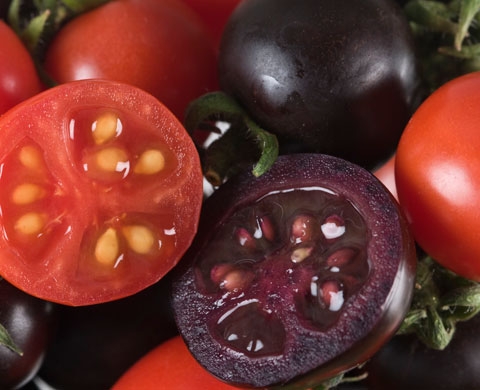
Image Credit: Chuck Poulsen
April 02, 2015 - 7:30 AM
Recent approval of the Okanagan-backed Arctic apple is a far more exceptional scientific advance than most of us have realized.
When they hit the market late next year, the Arctic varieties of Granny Smith and Golden Delicious will be virtually the only genetically modified fruit anywhere in a store in Canada and the U.S.
We’re famous!
Or infamous, if you are among the mystifying anti-GMO multitude who suffer from scienceophobia. (Yes, it is a word, the phobia part being defined as usual by an irrational fear of something that poses no real danger).
Okanagan Specialty Fruits silenced a gene and turned down the polyphenol oxidase in an apple, thus inhibiting the cut fruit from browning. Not one additive and not one foreign gene spliced in. The apple was approved safe by the Canadian Food Inspection Agency, Health Canada and the U.S. Department of Agriculture. Still, the MMOs (Mentally Modified Organisms) who follow the evangelist David Suzuki are already swearing marketplace boycotts.
Grocery stores in Canada do not sell GMO fruit, with only the possible exception of the odd papaya.
Only two GMO vegetables are allowed on the shelf: corn (modified to protect from earworm) and some types of squash (to protect from a virus). Most GMO corn is hard corn that goes to animal feed. That’s it – and that’s what makes the Arctic apple such an international breakthrough as a GMO fruit.
Processed foods are entirely different. As much as 80 per cent of processed foods in Canada may contain a GMO ingredient, most notably, canola, corn and soybean oil, and sugar from sugar beets.
The freshness of the Arctic apple can be duplicated in many vegetables if the anti-GMOs wouldn’t raise their ruckus. Canadians throw away one-third of their produce because it goes bad. To import a fresh-looking tomato, or most other fruits, in all but the summer months, the tomatoes are harvested while green, kept in cold storage, and then artificially ripened right before sale. They’re pale, tasteless and have lower nutritional value than if they were ripened on the vine.
Tomatoes that would last 30 days after being picked and lettuce and carrots that would be slow to wilt or go limp, are all possible right now, although consumer rejection of GMOs has put those projects largely on hold.

Image Credit: John Innes Center
On the subject of better health, here’s a new one: Scientists have created a blue tomato that greatly increases the content of anthocyanin, an antioxidant. When snapdragon genes (yes, just snapdragons) were used, the normally low-antioxidant tomatoes had similar antioxidant values of blackberries and blueberries, yet still tasting like a tomato. Blue tomatoes are in clinical trials and involve the Canadian company, New Energy Farms.
Potatoes without black spots are also genetically said-and-done, but what’s a restaurant like McDonald’s to do in the face of the anti-GMO movement?
Korean scientists are looking at a tomato to deliver a vaccine against Alzheimer's disease. Do we really want to stop that research?
The newest nutrition-improving GMOs are golden rice and cassava, the basic potato-like staple in Africa and other poor regions. Golden rice can give billions of people – and their children, of course - nutrients that don’t exist in regular rice. Golden rice can prevent blindness and almost certain death in the third world.
Scientists funded by the Bill and Melinda Gates Foundation are engineering vitamins and micronutrients into cassava. Do you really want to stop that research, those of you well-off soccer moms who are trying to protect your children from genetic science?
GMOs are being developed to make food crops resistant to both drought and the effects of flooding.
Do you really want to stop that, climate change people?
Every major international science body in the world has reviewed GMO studies. A team of independent Italian scientists summarized 1,783 of those studies about the safety and environmental impacts of GMO foods and you don’t get studies much larger than that.
Said those scientists: “The scientific research conducted so far has not detected any significant hazards directly connected with the use of genetically engineered crops.”
I suppose that’s not good enough either.
*
B.C. Fruit Growers’ Association president Fred Steele says he doesn’t have a problem with science. However, he does have every reason to worry about the marketing blowback that may taint all Okanagan apples.
GMOs haven’t been labelled for the simple reason that we label ingredients, not processes. But I think they should be labelled anyway. Even wrong-headed consumers have a right to information. Then we will also need to label organic produce with the following: May contain or be processed using: ethanol, hydrogen peroxide, sulphur dioxide (to kill rodents), Vitamin D3 (cholecalciferol; as a slug bait), streptomycin, tetracycline and ethelyne gas.
Streptomycin and tetracycline are antibiotics. Surprise!
— Chuck Poulsen can be contacted at PC30@Shaw.ca.
News from © iNFOnews, 2015